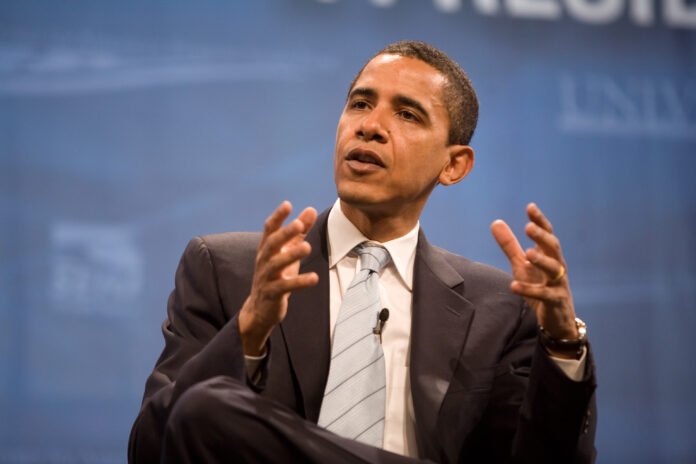Restrictions on oil and natural gas development on federal lands – imposed by the U.S. Bureau of Land Management (BLM) during the Obama administration – are being targeted for swift repeal by Republicans in Congress.
The BLM’s “venting and flaring” rule and the agency’s “Planning 2.0” have been highlighted by analysts and key lawmakers in recent days.
These measures, approved by the Obama Interior Department late last year, could be abolished under the 1996 Congressional Review Act, a measure that allows agency regulations to be overturned by a majority of lawmakers and the approval of the president.
“The Congressional Review Act will probably get more play this year than ever before,” Adam Taylor, a legislative analyst with Bloomberg Government, said in a recent briefing.
In 20 years, the measure has been used successfully only once, Taylor said. But Republican control of Congress and the White House after the 2016 will likely change that.
“That number will likely increase this year, as Congress is targeting several rules issued in the last 60 legislative days of 2016,” Taylor said. “These include the Interior Department’s venting and flaring rule.”
Western lawmakers have been leading the charge against the Obama administration’s BLM rules – which have targeted oil, natural gas and coal production on federal lands – as part of a broader regulatory reform push.
“With the use of the Congressional Review Act, I’m planning on introducing a disapproval resolution on the BLM’s venting and flaring rule,” U.S. Sen. John Barrasso (R-Wyo.) said during the Jan. 17 confirmation hearing for Interior Secretary-designate Ryan Zinke.
The rule “far exceeds the authority of the BLM” and “put federal lands at an even greater competitive disadvantage to state and private lands,” the Wyoming senator told the Senate Energy and Natural Resources Committee. Barrasso is also the chairman of the Senate Environment and Public Works Committee.
Zinke, a Montana Congressman, said he would work with Barrasso to reverse the venting and flaring rule if confirmed by the Senate to serve in President Donald Trump’s Cabinet.
Zinke said he was concerned about emissions of methane – the primary constituent of natural gas – when energy companies are drilling for oil on federal lands.
But instead of BLM restrictions on venting and flaring of methane, the federal government should encourage the construction of more pipelines to capture and transport the gas.
Such pipelines have been staunchly opposed by the Sierra Club and other “keep it in the ground” activist groups.
“Let us build a system where we capture that energy that is otherwise being wasted,” Zinke said. “It’s an enormous opportunity.” Over-regulation of U.S. energy production will only push oil and natural gas development to countries with lax environmental standards, he said. “It’s better to produce energy in America under reasonable regulation, and get better over time, than watch it be produced overseas with no regulation,” he said.
Former U.S. Rep. Cynthia Lummis (R-Wyo.), who served in Congress from 2009 until this month, is another critic of the BLM’s venting and flaring rule.
She argues that the federal rule “duplicates state regulations already in place” to limit emissions and the additional federal red tape will prevent oil wells from being drilled on federal land.
“The BLM should be streamlining their permitting process for pipeline construction to improve the collection of this valuable resource and generate as many royalties for the taxpayer as possible rather than trying to stick a cork in production,” Lummis wrote in a letter to The Ranger newspaper in Fremont County, Wyo.
The venting and flaring rule is a top target for repeal, House Majority Leader Kevin McCarthy (R-Calif.) said earlier this month.
As reported by Western Wire the week, the rule has stirred controversy across the West, especially in New Mexico, where state Attorney General Hector Balderas (D) has come under fire for defending it in court.
The BLM’s Planning 2.0 regulation, which overhauls natural resource planning in the West, is also a good candidate for swift repeal under the CRA, according to U.S. Sen. Lisa Murkowski (R-Alaska), chairwoman of the Senate Environment and Natural Resource Committee.
Planning 2.0 – an initiative of the outgoing Obama administration – was finalized late last year over the objections of many local and state officials in the West.
The rule imposes a “landscape-level” planning process for federal lands that moves decisions about natural resource development away from BLM field offices.
The changes were needed to create a “more streamlined process,” the agency said, but criticism of Planning 2.0 was widespread.
The bipartisan Western Governors Association (WGA), for example, said during the rulemaking that Planning 2.0 “presents serious challenges and contains significant shortcomings.” It creates “confusion rather than clarity [and] less transparency rather than more,” the WGA warned.
During Zinke’s nomination hearing, U.S. Sen. Cory Gardner (R-Colo.) said Planning 2.0 was a prime example of the disconnect between federal agencies in Washington, D.C. and communities in the West.
“BLM Planning 2.0 is a great example of how little Washington understands about the West and how bureaucrats get in the way of how things work in the West,” Gardner said in comments first reported by Western Wire. “A one-size-fits-all approach has failed.”
Gardner went further, citing Planning 2.0 as an example of why the BLM’s headquarters should be relocated from Washington to a western state.
“Perhaps we could cure some agencies like the BLM of Potomac Fever by moving them out of Washington,” Gardner said.

